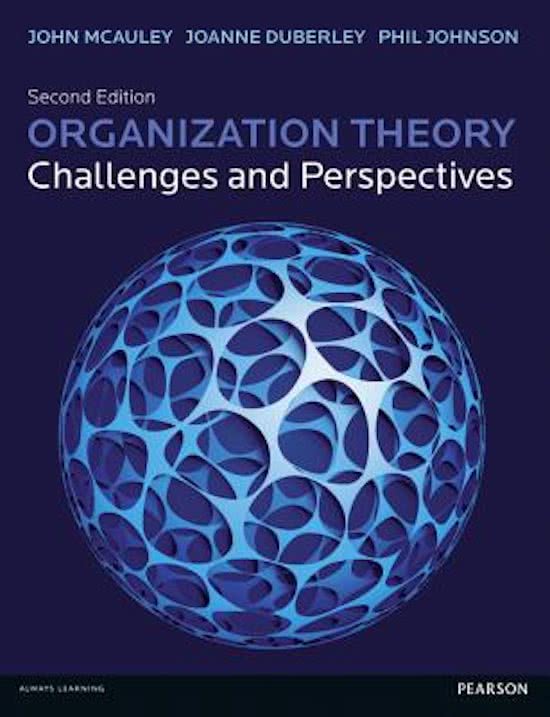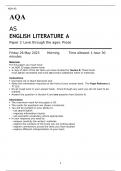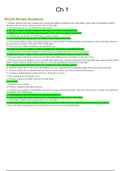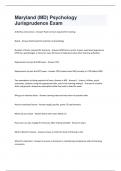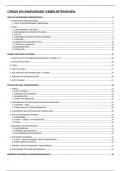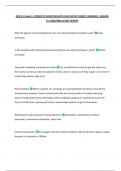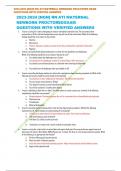What is organization theory?
Concerned with the studies of the various theories about organizations that have developed
since the latter part of the nineteenth century. The origins of the organization theory lie in
developing a sociological understanding of organization.
What is an organization?
- An organization is not just a number of people or a legal entity.
- Organization refers to interaction (people acting and reacting), structure and order (as a
result of organising).
Different levels of organizations
- Micro: small group, classroom
- Mezzo: school, company
- Macro: society
Why is organization theory valuable?
- Try to tell us things about the world.
- Define, classify and categorize aspects of the world.
- Propose reasons in the form of cause-and-effect relationship.
What are the different aspects of organization theory?
- Ontological and epistemological positions
o Ontology > the nature of phenomena (gebeurtenis) and their existence.
What is existence? Vragen over het bestaan.
o Epistemology > how do we know what exists, how we acquire knowledge.
How do you know? What do you know? Vragen over hoe we iets weten.
- Positivism and subjectivism
o Positivism > objective facts, observable, measurable
o Subjectivists > validity of individual experiences.
- Managerialism and perspectives
o Managerialism > many scholars of organization focus on questions of effective
management, to achieve goals set by owners and managers. Pursuing a set of
ideals and ideas about management.
Who is Adam Smith and what did he do? (adAM Smith = Ma > market, S > self-
organization)
Adam Smith published in 1776 an essay, named The wealth of Nations. Adam Smith studies
the new factory system
Liberalism > Freedom is central
- Core idea of Adam Smith > a free market leads to efficient self-organization of
economies.
o The invisible hand of the market > provided self-regulation of the economy. This
idea, that rational thought and freedom are central and lead to a better world.
, The invisible hand is a metaphor for the unseen forces that move the free market
economy. Through individual self-interest and freedom of production and
consumption, the best interest of society, as a whole, are fulfilled.
o Freedom to trade and barter on markets > is the self-regulatory effect of a market
where everyone pursues only self-interest, but in doing so manages to create
collective wealth.
- Division of labor increases efficiency, because:
o People do not have to switch between tasks; they are focused on one task
o Skill is enhanced by repetition
o Task can be matched to talents > specialization
o Helps the development of specific tools/machines
- What is the value of the theory of Adam Smith/ Division of labour?
o Helps us to understand out world. Very useful for:
Governments
Planning complex work processes
Communication
Who is Henri Fayol and what did he do?
Henri Fayol (1841-1925) published in 1916 an essay named “Administration industrielle et
générale”.
- Develop an integral framework for managers to manage organizations.
- Distinguished 5 functions of management
o Organizing
o Coordinating
o Planning
o Instruct
o Checking
- Formulates 14 principles for managers on how to fulfil these tasks.
o Unity of authority
o Task specialization
o Centralization
- Fayol’s principles can be summarized as efficiency, stability, equality and clarity.

